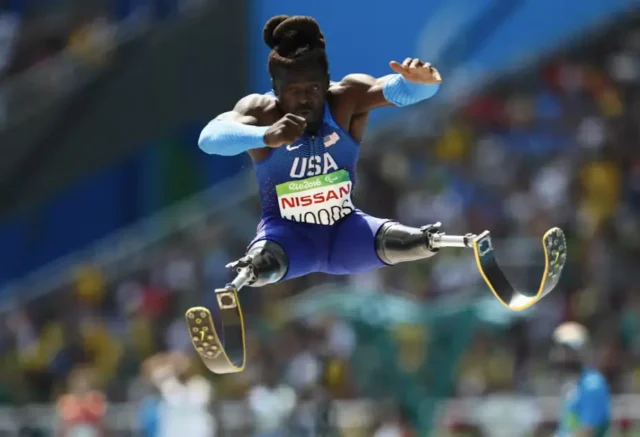The Paralympic Games have grown significantly over the years, transforming from humble beginnings into the third-largest sports competition in the world. With this growth, the global audience and economic impact have also expanded, drawing in more athletes and increasing the stakes. However, as the Paralympics have become more prominent, there has been a rising concern among some athletes that cheating is becoming more prevalent.
The Rise of Cheating Concerns in the Paralympics
The Paralympic movement has always been about showcasing the incredible achievements of athletes with disabilities. However, as the Paralympic Games continue to grow, so do the concerns about cheating and classification doping. The issue of classification doping arises when competitors are placed in the wrong sport class to gain an unfair advantage. This manipulation of the classification system undermines the integrity of the Paralympic movement and raises questions about the fairness of the competitions.
In Maniago, Italy, during a World Cup hand-cycling event, the issue of classification doping became visible. Charles Moreau, a paraplegic athlete from Canada, along with other cyclists, stopped the race in protest against what they believed was a flawed system. The demonstration drew attention to the sensitive topic of cheating in the Paralympic Games. The spectators chanted and applauded as the cyclists resumed the race, but the issue remained.
The Complexity of the Classification System
The classification system in the Paralympics is designed to ensure that athletes with similar impairments compete against each other in a fair and equitable manner. However, the criteria for assigning classes can sometimes be ambiguous, leading to judgment calls that may not always be accurate. Medical classifiers are responsible for determining the correct class for each athlete, but the process can be complex and subjective.
For example, in track and field, the 100-meter dash has different classes for men and women based on their disabilities. While some classes are clear-cut, others are more open to interpretation, making the classification process a potential source of controversy. The Paralympics rely on the integrity of the classification system, but when athletes or competitors suspect that the system has been manipulated, it leads to a loss of trust.
Real-World Examples of Classification Doping
The Paralympic Games have seen several high-profile scandals related to classification doping and cheating. One of the most infamous cases occurred during the Sydney Games, where Spain’s intellectual disability men’s basketball team won a gold medal despite not all players having a disability. This scandal led to a ban on intellectual disability events in the 2004 and 2008 Paralympics.
More recently, at the Tokyo Games, Indian track athlete Vinod Kumar won a bronze medal in the discus, only to have it taken away when officials found that he had misrepresented his disability. Similar controversies have occurred at the Beijing Games, where British teenage track athlete Rebecca Chin was stripped of her silver medal in the shot put competition after being placed in the wrong division.
These examples highlight the ongoing challenges within the Paralympic movement to maintain a fair and equitable competition for all athletes. The system designed to ensure fairness can sometimes be manipulated, leading to public outcry and calls for better oversight.
The Role of the International Paralympic Committee
The International Paralympic Committee (IPC), along with other sport governing bodies, is responsible for maintaining the integrity of the Paralympic Games. However, some athletes and competitors believe that the current mechanisms for addressing grievances and classification doping are inadequate. The IPC has faced criticism for its handling of these issues, with some calling for an overhaul of the classification system.
For example, David Berling, a U.S. paracyclist, filed a lawsuit against the IPC, arguing that the organization has a monopoly over the classification system, making it difficult for athletes to seek redress for unfair classification decisions. Berling’s case is one of several that have highlighted the need for better oversight and more transparent methods for challenging classification decisions.
The Impact of Cheating on the Paralympic Movement
The growth of the Paralympic Games has brought with it increased rewards and incentives for athletes, including lucrative sponsorships and financial support from national federations. However, this also creates a higher risk of cheating as competitors seek to gain an unfair advantage. The Paralympics have always been seen as a symbol of inspiration and fair play, but the rise of cheating and classification doping threatens to tarnish that image.
Oksana Masters, a U.S. Paralympian and double leg amputee, has won multiple gold medals in various sports, including cross-country skiing and biathlon. Despite her success, she has spoken out about the challenges of competing in a system where cheating is a concern. Masters’ story is a reminder of the importance of safeguarding the Paralympics and ensuring that all athletes have the opportunity to compete on a level playing field.
Moving Forward: Ensuring Fair Play in the Paralympics
As the Paralympic Games continue to grow and attract a global audience, it is crucial to address the issues of cheating and classification doping head-on. The IPC and other governing bodies must take steps to improve the classification system and provide better oversight to prevent manipulation. This includes revisiting the criteria for classification, increasing transparency in the classification process, and providing more effective avenues for athletes to challenge unfair decisions.
In conclusion, the Paralympic Games have come a long way since their inception, becoming a major international sports competition with a significant impact on the global economy. However, the rise of cheating and classification doping poses a serious threat to the integrity of the Paralympic movement. By addressing these issues and ensuring that the Paralympics remain a symbol of inspiration and fair play, we can continue to celebrate the achievements of athletes with disabilities while maintaining the spirit of competition.
If you love staying updated with the latest in fashion, travel, tech, sports, and gadgets, be sure to follow new feed nation. Don’t miss out on any updates—get the freshest news and trends delivered right to you!





























